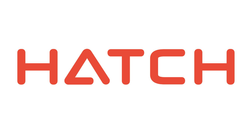Major trend towards water quality in the public sector
| Major trend towards water quality in the public sector | 32.5 KB | Download | |
| Andrew Officer, water business unit regional director at Hatch Goba. | 493.93 KB | Download | |
| Jason Browne, Hatch Goba principal engineer. | 1.07 MB | Download | |
| The Darvill Wastewater Treatment Works in Pietermaritzburg, KwaZulu-Natal. | 6.66 MB | Download |
“Water treatment as a whole is becoming more and more relevant in the South African context. While many of the issues around the looming water shortage in the country are related to the risk posed by the diminishing quantity, there is less discussion about the risk posed by water quality,” comments Andrew Officer, water business unit regional director at Hatch Goba.
“This is simply because as the water quality deteriorates, there is a commensurate increase in the cost associated with water treatment.” Officer points to major water-quality issues such as the acid mine drainage problem in Gauteng and other mining-intensive area, and eutrophication in Hartbeespoort Dam. “It is not only just a recreational or tourism issue anymore; the downstream concern is that you have to consume and use that water at some stage,” Officer adds.
The water business unit falls within the infrastructure leg of Hatch Goba (the two other legs are Energy and Mining & Minerals Processing). Infrastructure itself operates via five business units, including roads and transportation, rail, ports and marine terminals and water and infrastructure services.
“In South Africa, our business is predominantly public sector, about 90%, and that is in water and wastewater treatment and bulk infrastructure arenas. At this stage we are predominantly active in South Africa and its neighbouring states. However, we are looking to expand our presence in the African market.”
Hatch Goba is busy in Botswana, Mozambique and Lesotho at the moment from a treatment perspective. “We tend to adopt a strategy of following our existing clients into new geographies in Africa and then using that entry point into other markets within that specific geography.”
Officer remarks that Hatch Goba also prefers working with some of the more established multilateral funding agencies such as the World Bank and Millennium Challenge Corporation and development funding institutions such as the DBSA and AfDB “where there are more robust procurement systems and better transparency. We think also the reality in the public sector in foreign is that you have to partner with local consultancies in these countries.”
He points out: “Locally-based consultants have a better appreciation of the business environment, which helps reduce our business risk. We generally target the larger projects where we can benefit from the economies of scale and additional structure that is required to deal with the project risks.”
Current projects include water-treatment works in Botswana, Mozambique and Lesotho, major transfer schemes such as Limpopo’s R13.4 billion two-phase Mokolo Crocodile Water Augmentation Project and the North-South Carrier Pipeline Project (Phase 2) in Botswana, which will transport water 360 km south to the capital city of Gaborone. Hatch Goba is also undertaking several large-scale rural water-supply projects in the Eastern Cape and KwaZulu-Natal.
“From a wastewater treatment perspective, we are currently halfway through construction of the upgrade of the Darvill Wastewater Treatment Works in Pietermaritzburg, owned and operated by Umgeni Water,” Jason Browne, principal engineer at Hatch Goba, reveals. This project is aimed at increasing the ultimate design capacity from 50 megalitres a day to 120.
In November last year, Hatch Goba completed another major wastewater treatment upgrade for Johannesburg Water, boosting the capacity at the Bushkoppie plant near Soweto from 200 megalitres a day to 250.
At the Midmar Waterworks near Howick in KwaZulu-Natal, Hatch Goba will nominally add 125 megalitres a day of water treatment capacity in a major project that has just commenced construction, with completion anticipated in 2017.
Ends
Notes to the editor
To download hi-res images for this release, please visit http://media.ngage.co.za and click the Hatch Goba link to view the company’s press office.
About Hatch Goba
Hatch Goba supplies process and business consulting, information technology, engineering, procurement and project and construction management and operational services to the mining, metallurgical, energy and infrastructure sectors.
Media Contact
Gerhard Hope
NGAGE Public Relations
Phone: (011) 867-7763
Fax: 086 512 3352
Cell: 078 824 8723
Email: gerhard [at] ngage [dot] co [dot] za
Web: www.ngage.co.za
Browse the NGAGE Media Zone for more client press releases and photographs at http://media.ngage.co.za

